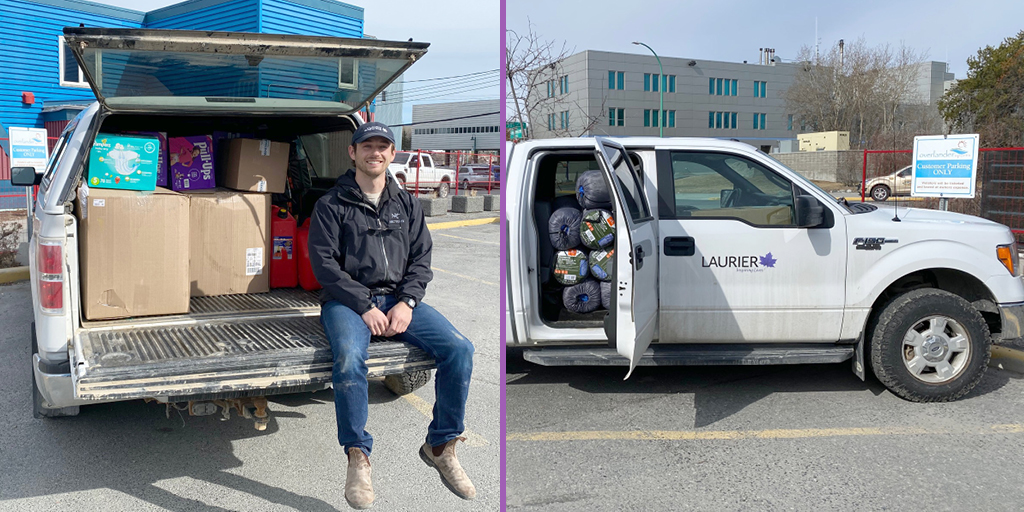We use cookies on this site to enhance your experience.
By selecting “Accept” and continuing to use this website, you consent to the use of cookies.
Search for academic programs, residence, tours and events and more.
May 17, 2021
Print | PDFResearchers at Wilfrid Laurier University are showing their support for residents of the Dehcho Region in the Northwest Territories as they experience destructive flooding in their communities.
Over the Mother’s Day weekend, the Mackenzie River reached historic levels in the Dehcho Region. Seven hundred people were evacuated from the village of Fort Simpson, about sixty percent of its population. In Jean Marie River, nearly the entire population of approximately one hundred residents were forced from their homes, many of them in boats as the community’s access road quickly disappeared under water.
Laurier has a special relationship with the Dehcho people, fostered through collaborative research projects with the Cold Regions Research Centre and the Laurier Institute for Water Science, and an 11-year research partnership with the Government of the Northwest Territories.
“We know the Dehcho people and their families,” says William Quinton, professor of Geography and Environmental Sciences at Laurier and the director of the Scotty Creek Research Station, located just 50 kilometres south of Fort Simpson. “Some of us have spent 20 or 30 years collaborating with them. We work together at our research sites, they have mentored our students and they have taken us into their homes. Now they are in need and the question becomes ‘What can we do to help?’”

Laurier's Mason Dominico preparing to deliver supplies to communities in need.
In addition to making personal donations, Quinton and his Laurier colleagues are working with their Dehcho partners to offer tangible aid. On Monday, May 17, Mason Dominico, a research technician at Laurier’s Yellowknife Office, delivered camping gear, baby supplies and other essential items donated by local businesses to the affected communities. And in the long term, Laurier faculty and students will continue to collaborate on environmental research in the region, helping to prepare it for future extreme weather events.
"I was supposed to be in touch with Jean Marie River’s environment coordinator last week to discuss plans for upcoming climate change adaptation research,” says Alex Latta, an associate professor who is co-leading a research project with Dehcho First Nations on the importance of Indigenous involvement in environmental management and conservation. “Instead, I was getting texts from her about the devastating impacts of all that water and ice on homes and infrastructure. It's a tragic example of how the effects of climate change are outpacing adaptation efforts in the North."
Cabin Radio, a local news outlet in Yellowknife, has compiled a list of ways to support the flooded communities. For more information, contact Stephanie Whitney, Laurier’s manager of research partnerships, at swhitney@wlu.ca.